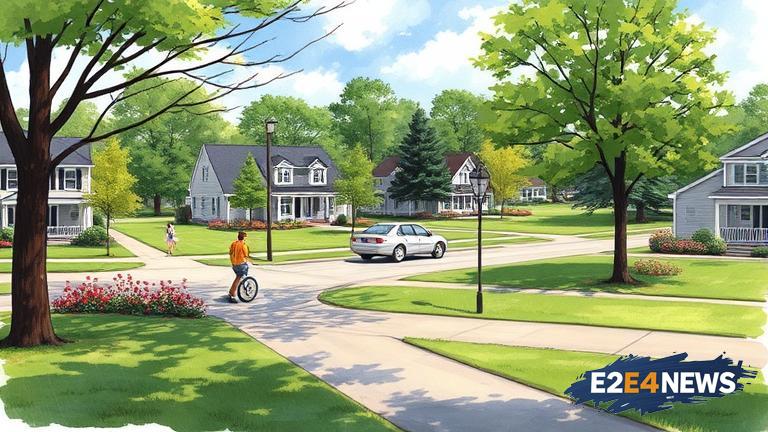A contentious debate is unfolding in the Crossgates community, where a proposed park has sparked heated discussions among neighbors. The park, which would be located on a currently vacant lot, has been met with both enthusiasm and skepticism. Proponents of the park argue that it would provide a much-needed green space for residents, offering a tranquil oasis in the midst of a bustling neighborhood. They also point out that the park would be a valuable asset for the community, providing a space for recreation, relaxation, and socialization. On the other hand, opponents of the park are concerned about the potential impact on noise levels, traffic, and property values. They argue that the park would attract large crowds, leading to increased noise pollution and traffic congestion. Some neighbors are also worried that the park would decrease property values, as the presence of a public park could be seen as a deterrent to potential homebuyers. Despite these concerns, supporters of the park argue that it would actually increase property values, as a well-designed and well-maintained park can be a major selling point for the community. The proposal has also sparked discussions about the need for more green spaces in the area, with some arguing that the park would help to mitigate the urban heat island effect and improve air quality. Others have pointed out that the park could be designed to incorporate sustainable features, such as rain gardens and green roofs, which would help to reduce stormwater runoff and minimize the park’s environmental impact. As the debate continues, neighbors are urging the local government to consider their concerns and work towards finding a solution that benefits the entire community. The proposal has also highlighted the importance of community engagement and participation in the planning process, with many calling for more transparent and inclusive decision-making. The fate of the proposed park remains uncertain, as the local government weighs the pros and cons of the project. In the meantime, neighbors are continuing to voice their opinions and concerns, hoping to shape the future of their community. The debate has also sparked a wider conversation about the role of parks and green spaces in urban planning, with many arguing that they are essential for creating livable and sustainable cities. As the discussion continues, it is clear that the proposed park in Crossgates has become a lightning rod for broader debates about community development, environmental sustainability, and the importance of green spaces in urban areas. The proposal has also raised questions about the balance between public and private interests, with some arguing that the park would be a valuable asset for the community, while others see it as a potential threat to their property values. Ultimately, the decision on whether to proceed with the proposed park will depend on a careful consideration of these competing interests and concerns. The local government will need to weigh the potential benefits of the park against the potential drawbacks, and work towards finding a solution that balances the needs of all stakeholders. As the debate continues, one thing is clear: the proposed park in Crossgates has become a major issue in the community, with far-reaching implications for the future of the neighborhood. The proposal has also highlighted the importance of effective communication and collaboration between neighbors, local government, and other stakeholders. By working together and engaging in open and respectful dialogue, it may be possible to find a solution that benefits everyone involved. The proposed park has also sparked discussions about the potential for community-led initiatives and grassroots organizing, with some arguing that the park could be a catalyst for community engagement and social cohesion. As the debate continues, it will be important to consider the potential for the park to bring people together and foster a sense of community pride and ownership. The proposal has also raised questions about the role of local government in supporting community development initiatives, with some arguing that the government should play a more active role in supporting community-led projects. Ultimately, the decision on whether to proceed with the proposed park will depend on a careful consideration of these competing interests and concerns, as well as a commitment to finding a solution that benefits the entire community.
